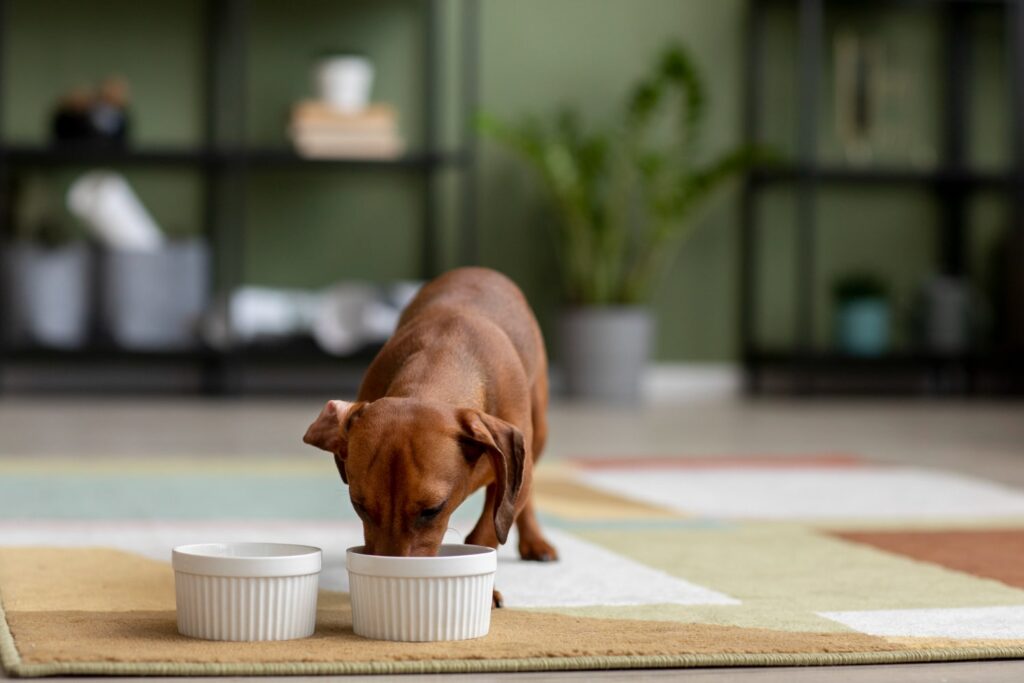Welcome to Our Website’s comprehensive guide on dogs and peanut butter. At ownthedogs.com, we are dedicated to providing the best information and advice for pet owners.
In this article, we will explore the interesting relationship between dogs and peanut butter, including its benefits, potential risks, and how to safely include it in your furry friend’s diet.
Whether you’re a seasoned dog owner or considering getting a new pet, this guide is designed to help you make informed decisions and ensure the well-being of your beloved canine companion.
Why Do Dogs Like Peanut Butter?
Dogs like peanut butter because it has a rich, savory taste and creamy texture that appeals to their palate. Peanut butter is also high in fats and proteins, which makes it satisfying and enjoyable for dogs.
Additionally, the smell of peanut butter can be particularly enticing to dogs.
It’s important to choose peanut butter that is free of xylitol and added sugars, as these can be harmful to dogs. Always give peanut butter in moderation as a treat, not a regular part of their diet.
The Benefits of Peanut Butter for Dogs
Peanut butter has gained immense popularity as a treat for dogs and for good reason. Here are some of the key benefits that make it a favorite among pet owners:
1. Excellent Source of Protein
Peanut butter is a rich source of plant-based protein, which is essential for maintaining a dog’s overall health and supporting muscle development. Protein helps repair cells, build and maintain strong muscles, and boost the immune system. Including peanut butter in your dog’s diet can be a tasty and nutritious way to supplement their protein intake.
2. Healthy Fats and Nutrients
Peanut butter contains healthy fats, such as monounsaturated fats, which are beneficial for dogs. These fats help promote a shiny coat, support brain function, and provide a readily available source of energy. Additionally, peanut butter is packed with important nutrients like vitamin E, vitamin B, and niacin, which contribute to a dog’s overall well-being.
3. Mental Stimulation and Enrichment
Using peanut butter as a treat or filling it in a puzzle toy can provide mental stimulation and enrichment for dogs. The challenge of getting to the hidden peanut butter can keep them engaged and entertained, reducing boredom and potentially destructive behavior. It’s a great way to keep your dog mentally active and happy.
Read More: Valu Pak Dog Food Benefits
Precautions and Potential Risks
While peanut butter can be a healthy addition to your dog’s diet, there are a few precautions to keep in mind:
1. Allergies and Sensitivities
Just like humans, dogs can have allergies or sensitivities to certain foods, including peanuts. It’s important to monitor your dog’s reaction when introducing peanut butter for the first time.
Start with a small amount and observe any signs of discomfort, such as itching, vomiting, or diarrhea. If any adverse reactions occur, consult your veterinarian immediately.
2. Added Ingredients and Sweeteners
When choosing peanut butter for your dog, opt for natural and unsalted varieties without added sugars, xylitol, or artificial sweeteners. Xylitol, commonly found in many human foods, can be highly toxic to dogs and lead to a sudden drop in blood sugar levels, causing weakness, seizures, or even liver failure.
Always read the labels carefully and choose a peanut butter that contains only peanuts and no harmful additives.
Read More: My Dog Chewed a Battery But Didn’t Swallow
Safely Incorporating Peanut Butter into Your Dog’s Diet
To ensure your dog enjoys peanut butter safely, consider the following guidelines:
1. Moderation is Key
Peanut butter should be given to dogs in moderation. While it’s a delicious treat, it’s important not to overfeed your furry friend. Excessive consumption can lead to weight gain, digestive issues, and an imbalance in their diet.
Limit the amount of peanut butter you give to your dog and use it as an occasional treat rather than a staple food.
2. Serving Suggestions
There are various ways to serve peanut butter to your dog:
- Stuff it in a Kong: Fill a Kong toy with peanut butter and freeze it for a longer-lasting treat that will keep your dog engaged and entertained.
- Homemade Treats: Incorporate peanut butter into homemade dog treats. There are plenty of easy-to-follow recipes available online that use peanut butter as a key ingredient.
- Peanut Butter Lick Mat: Spread a small amount of peanut butter onto a lick mat to keep your dog occupied and provide mental stimulation.
FAQs
Is peanut butter good for your dog?
Peanut butter can be a healthy treat for your dog if given in moderation. It contains healthy fats, protein, and vitamins. However, it’s important to choose a peanut butter that is free of artificial sweeteners, such as xylitol, as these can be toxic to dogs.
Additionally, some dogs may have allergies or sensitivities to peanuts, so it’s always best to introduce it gradually and monitor your dog for any adverse reactions.
Do most dogs like peanut butter?
Many dogs absolutely love the taste of peanut butter. The creamy and rich texture, along with the nutty flavor, makes it highly appealing to them. Peanut butter is often used as a reward during training sessions or as a filling for interactive toys.
However, it’s important to note that not all dogs may have the same preference, and individual tastes can vary among different breeds and personalities.
Read More: Can Dogs Eat Lobster?
Can I let my dog lick peanut butter?
Allowing your dog to lick peanut butter can be a fun and enjoyable experience for both of you. It can be used as a way to provide mental stimulation and keep your dog entertained. Licking peanut butter can also help distract dogs during grooming or vet visits.
However, make sure to supervise your dog while they lick peanut butter to avoid any choking hazards, especially if they tend to be overly enthusiastic or have a tendency to swallow large amounts quickly.
Is it OK to give my dog peanut butter every day?
While it’s generally safe to give your dog peanut butter occasionally, it’s not recommended to make it a daily habit. Peanut butter is high in calories, and excessive consumption can contribute to weight gain and obesity in dogs.
Additionally, some peanut butter brands may contain additives like salt and sugar, which are not suitable for regular canine consumption. It’s best to consult with your veterinarian to determine an appropriate frequency and portion size based on your dog’s individual needs and health condition.
What are the potential risks of feeding peanut butter to dogs?
Feeding peanut butter to dogs carries a few potential risks. Firstly, certain peanut butter varieties may contain xylitol, an artificial sweetener that is highly toxic to dogs. Xylitol can cause a rapid release of insulin in dogs, leading to low blood sugar levels and potentially life-threatening complications.
Additionally, some dogs may have peanut allergies or sensitivities, which can manifest as digestive issues, skin problems, or respiratory distress. Always check the ingredients list and opt for a peanut butter brand that is free from harmful additives.
If you notice any adverse reactions after feeding your dog peanut butter, consult your veterinarian immediately.
Conclusion
Peanut butter can be a delightful and nutritious addition to your dog’s diet when used responsibly. Remember to choose natural and unsalted varieties, avoid harmful additives, and monitor your dog for any adverse reactions.
By following these guidelines, you can safely incorporate peanut butter into your furry friend’s routine and provide them with a tasty treat they’ll love. Remember, the key is moderation and always prioritizing your dog’s overall well-being.


